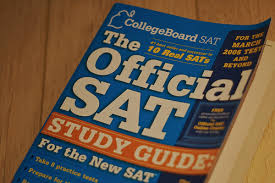Dartmouth officially stated on February 5th, 2024 that they would be reinstating their standardized test requirements for applicants of the class of 2029 and onward, (meaning those who are graduating high school in 2025). Yale then announced on February 29th that they would also be reinstating their requirement beginning in the fall of 2025. Massachusetts Institute of Technology had taken the lead with this change in policy, first reinstating their standardized tests for the class of 2023. With many universities being on hiatus with this policy starting during the COVID-19 pandemic, there has been tremendous uproar about bringing back these tests. These colleges claim to have many reasons for requiring standardized tests, and say that it would be beneficial for a more holistic approach to the admissions process.
Dartmouth was the first Ivy League school to require SAT or ACT submissions. They stated that these scores would be beneficial in figuring out whether or not the students would do well in their classes. Also Dartmouth admissions officers would compare the SAT and ACT scores to the mean scores of the applicant’s high school to figure out how well the student does in an environment. Without the tests, colleges claim that they would not be able to see how a student may excel in a rigorous environment.. Theoretically, this policy change will allow for more diversity and an application process that is more stable. Yale cites similar reasons for reinstating their SAT/ACT policy, followed by Brown University, and University of Texas at Austin. Brown stated that the test scores would allow for better interpretation “of a student’s background and educational opportunities.”
However, the opposing argument has arisen that the reinstatement of these policies will actually disproportionately affect minorities and other marginalized communities. This is because those students cannot afford the same resources that other students might be able to, like test preparation workbooks, classes, and workshops, all of which boost student scores but can be very expensive. This issue would directly contradict the stated goal of the schools.
This being said, the SAT is a standardized test that could allow admission officers to compare all students at a more equal level. Many of the schools that have reinstated the SATs also said that the students who submitted higher SAT scores tended to do better in their classes than those who had not submitted their scores at all. This led admission officers to believe that there is a direct correlation between the standardized test scores and the successfulness of the students in their classes.
Schools like Georgetown University, University of Florida, Georgia Tech, Purdue University, and Florida State University, have converted back to requiring test scores around the same time MIT reinstated their policy. However, on the opposite end of the spectrum there are the California schools, which have stated multiple times that they will not go back to mandating tests, and hope to stay test optional. With so many schools requiring different things, the application process for future students is likely to only get more confusing and difficult.








